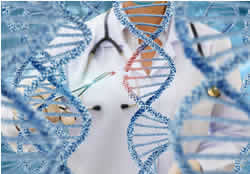 Canberra Clinical Genomics (CCG) has launched a new publicly funded diagnostic service to test patients for rare diseases using the latest gene-based techniques.
Canberra Clinical Genomics (CCG) has launched a new publicly funded diagnostic service to test patients for rare diseases using the latest gene-based techniques.
A collaboration between the ACT Health Directorate, Canberra Health Services and the Australian National University (ANU), CCG is accredited by the National Association of Testing Authorities (NATA) and is built on genomics research carried out at the ANU’s John Curtin School of Medical Research.
Minister for Medical and Health Research, Meegan Fitzharris welcomed the new service saying genomics was cutting-edge medicine.
“Patients who are battling rare or life-threatening diseases can have their genetic make-up analysed in order for personally tailored treatment,” Ms Fitzharris said.
“CCG now meets the rigorous standards required for NATA accreditation, and is one of only a few labs in Australia that is accredited for this advanced diagnostic exome sequencing.”
She said NATA accreditation for CCG was not only of immediate importance for advanced diagnostic in Canberra, but was also an important stepping stone towards the wider adoption of precision medicine.
“The ACT Government recognised the importance of clinical genomics with our investment in 2016, and I am delighted to see such rapid progress,” the Minister said.
“CCG is a service the ACT Government is proud to support.”
Director of CCG, Matthew Cook said exome sequencing was transforming the way clinicians managed conditions and treated rare diseases.
“Sequencing one human exome is quite complicated,” Professor Cook said.
“I am extremely proud of our team which has built on a discovery platform to implement a diagnostic service that meets the stringent requirements of the National Association of Testing Authorities in just 18 months.
“We are now delighted to be delivering genomic diagnoses to patients and their families,” he said.











